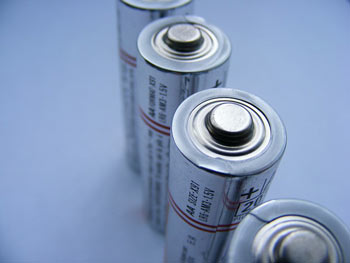The Mismanagement of Lithium-ion Batteries - A SWANA Scholarship Application Essay
August 31, 2022
As a way of recognizing some of the outstanding scholarship applications nominated to SWANA by our Chapters across the United States and Canada, we are posting applicants’ one-page essays on our blog. The essay, which was 10 percent of their application score, was to speak to the role solid waste management plays in addressing an environmental issue currently in the news. We asked, “What are the responsibilities of individuals who generate the waste versus the professionals tasked with managing the waste?”
The following essay was submitted by Katerina Brynda, one of the recipients of a 2022 Category I SWANA scholarship.

Lithium-ion battery fires and explosions are an all-too-common headline in the news these days.
These batteries are in many devices that we use in our day-to-day lives. In fact, they are in most smartphones, smartwatches, tablets, and computers, and some are even in power tools and modes of transportation such as electric cars, bikes, and scooters. When they are thrown away, rather than recycled, they end up in landfills where they have the potential to overheat and create a fire or an explosion. These events harm the affected area by damaging equipment, putting workers at risk, and also strain the responding fire department as these fires rage for hours. Fires and explosions also emit greenhouse gasses, which accelerate climate change.
Saying this, those disasters are some of the reasons why teaching people about proper disposal techniques of waste and providing them with specific places to do so are so important.
Individuals who generate waste oftentimes do not take into account the professionals that have to manage the waste and/or do not consider the environmental effect of their actions. These individuals that create the waste should be held responsible for correctly disposing of the waste that they generate, and professionals who are tasked with managing the waste should be held responsible for ensuring that the waste is dealt with in an environmentally friendly manner, specific to what kind of waste is being generated. This includes encouraging the public on the importance of managing waste properly.
In the case of lithium-ion batteries, manufacturers should be required to educate buyers on ways to properly dispose of batteries as well as create safe and accessible ways for them to be disposed of. Additionally, finding ways for components of these batteries to be repurposed can also be extremely beneficial and would reduce the amount of them that end up in landfills, thus reducing the number of spontaneous combustion events that occur.
In summary, more education needs to be done and steps need to be taken by responsible parties to help prevent these fires and combustion events in landfills. This includes, but is not limited to, public service announcements; implementing designated areas for lithium-ion batteries at recycling centers in communities that do not have them; adding information about lithium-ion batteries to school curriculum; offering incentives for proper disposal as well as the ability to return these batteries to stores; and encouraging manufacturers to increase research to repurpose used battery components. Additionally, landfills that have had fires should share their experiences and lessons learned to show the industry the urgency of implementing change and to better protect impacted individuals and infrastructure. This could include sharing warning signs, preventative measures, things that didn’t work, and more, which would help reduce the chance of additional disasters. If many of these efforts are combined, we will be closer to achieving a greener future.
Learn more about our scholarship winners in our recent newsletter article.







Leave a comment